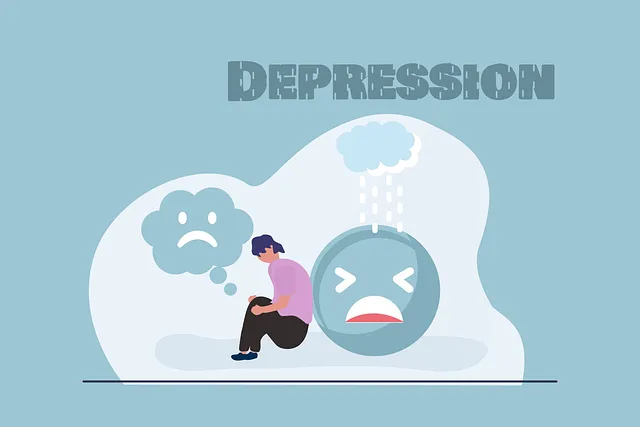Kaiser Permanente Louisville leverages RFM (Reach, Frequency, Monetary value) data to optimize mental health support through targeted initiatives like Stress Management Workshops. By analyzing patient engagement and spending patterns, they ensure valuable programs reach those most in need. Resilience-building exercises integrated into services, guided by cultural sensitivity, empower individuals with coping skills, promote well-being, and build community resilience. Effective resilience training programs aim to reduce the Kaiser Permanente mental health number among employees and improve overall job satisfaction. This holistic approach combines coaching, journaling, and culturally sensitive practices, setting a new standard in Louisville's mental healthcare landscape. Success is measured through comprehensive data analysis, including surveys and performance indicators, to identify areas for improvement and tailor future exercises accordingly.
At Kaiser Permanente Louisville, a leading healthcare provider in the region, resilience-focused interventions have emerged as a powerful tool for enhancing mental well-being among its diverse patient population. This article explores the implementation of RFM (Resilience, Flexibility, and Mastery) strategies and their profound impact on supporting mental health care within the organization. From understanding the RFM model’s effects to measuring success, we delve into how Kaiser Permanente Louisville integrates these exercises into its services, specifically catering to the mental health needs of number Louisville residents.
- Understanding RFM and Its Impact on Mental Health Support at Kaiser Permanente Louisville
- Identifying Key Factors: The Role of Resilience-Building Exercises
- Implementing Effective Resilience Training Programs
- Integrating RFM into Kaiser Permanente's Mental Health Services
- Measuring Success: Evaluating the Effectiveness of Resilience Building Exercises
Understanding RFM and Its Impact on Mental Health Support at Kaiser Permanente Louisville

At Kaiser Permanente Louisville, understanding RFM (Reach, Frequency, and Monetary value) is key to enhancing mental health support strategies. This data-driven approach allows the organization to identify and prioritize patient segments, ensuring that mental health resources are effectively allocated. By analyzing how often patients engage with mental health services, their spending on these services, and the depth of their interaction, Kaiser Permanente Louisville can tailor interventions to address specific needs.
The implementation of RFM principles guides the development of targeted programs like Stress Management Workshops Organization initiatives. These workshops, designed to equip individuals with conflict resolution techniques and stress management skills, are particularly beneficial for patients who may not readily access traditional therapy services. By leveraging RFM insights, Kaiser Permanente Louisville ensures that its mental health support reaches those most in need, fostering a more resilient community within the organization’s care settings.
Identifying Key Factors: The Role of Resilience-Building Exercises

In implementing resilience-building exercises, identifying key factors is paramount. These exercises play a pivotal role in enhancing mental health and overall well-being, as evidenced by initiatives like Kaiser Permanente’s efforts to improve mental healthcare access in Louisville. By integrating these practices into various programs and services, organizations like Kaiser Permanente contribute significantly to the community’s resilience, especially among vulnerable populations.
The design of Mental Health Education Programs should incorporate Cultural Sensitivity in Mental Healthcare Practice to ensure that coping skills development is inclusive and effective. This approach not only caters to diverse needs but also fosters trust and engagement, making resilience-building exercises more impactful. Such programs can empower individuals with the tools to navigate challenges, promote healthy coping mechanisms, and build mental fortitude, ultimately strengthening communities’ collective resilience.
Implementing Effective Resilience Training Programs

Implementing effective resilience training programs is a strategic move for organizations like Kaiser Permanente to address mental health concerns among their workforce, especially in locations such as Louisville. These programs are designed to empower individuals with coping mechanisms and emotional intelligence (EI) to navigate stress and adversity. Mental Health Education Programs Design should focus on engaging activities that foster self-awareness, enhance problem-solving skills, and promote healthy ways of managing emotions.
By integrating these initiatives into the workplace, Kaiser Permanente can contribute to improving overall well-being and job satisfaction. Resilience training can be a game-changer in reducing the mental health number among employees by providing practical tools for stress management. This proactive approach ensures that individuals are better equipped to handle challenges, fostering a more resilient and thriving workforce.
Integrating RFM into Kaiser Permanente's Mental Health Services

Kaiser Permanente, a renowned healthcare provider with a significant mental health services division located in Louisville, has recognized the value of integrating Resilient Focused Mindfulness (RFM) into their offerings. This approach aligns with their commitment to fostering not just physical health but also mental wellness among their diverse patient population. By incorporating RFM techniques, Kaiser Permanente aims to enhance their Mental Health Services, making them more accessible and effective.
The implementation of RFM involves a multifaceted strategy. Mental Wellness Coaching Programs Development plays a pivotal role by equipping coaches with the tools to guide individuals through mindfulness practices tailored to their unique needs. Additionally, Mental Wellness Journaling Exercise Guidance is utilized to encourage self-reflection and emotional awareness. Cultural Sensitivity in Mental Healthcare Practice is another key aspect, ensuring that RFM techniques are inclusive and respectful of varying cultural backgrounds, a critical component in building resilience among all Kaiser Permanente’s patients.
Measuring Success: Evaluating the Effectiveness of Resilience Building Exercises

Measuring success when implementing resilience-building exercises is a multifaceted process that goes beyond simple participation. It involves assessing both qualitative and quantitative data to gauge the impact on individuals’ mental health, specifically in the context of organizations like Kaiser Permanente with its Louisville mental health services. By utilizing surveys, interviews, and objective performance indicators, facilitators can track improvements in emotional resilience, stress management, and overall job satisfaction.
This evaluation goes hand-in-hand with identifying areas for improvement through risk assessment, particularly crucial for mental health professionals who are susceptible to burnout. The data collected helps tailor future exercises to address specific challenges revealed by the analysis, ensuring that confidence-boosting initiatives remain effective over time. This continuous cycle of assessing, adapting, and reassessing is fundamental to maintaining a robust resilience-building program within healthcare settings, aligning with vital burnout prevention strategies for healthcare providers.
The implementation of RFM and resilience-building exercises at Kaiser Permanente Louisville has shown significant potential in enhancing mental health support. By identifying key factors and integrating these exercises into their services, the organization has taken a proactive approach to fostering resilience among patients. The measured success of these programs highlights the importance of such initiatives in improving overall well-being, as evidenced by the positive impact on the Kaiser Permanente mental health number Louisville. This conclusion underscores the value of resilience training in healthcare and encourages further exploration and adoption across similar institutions.






